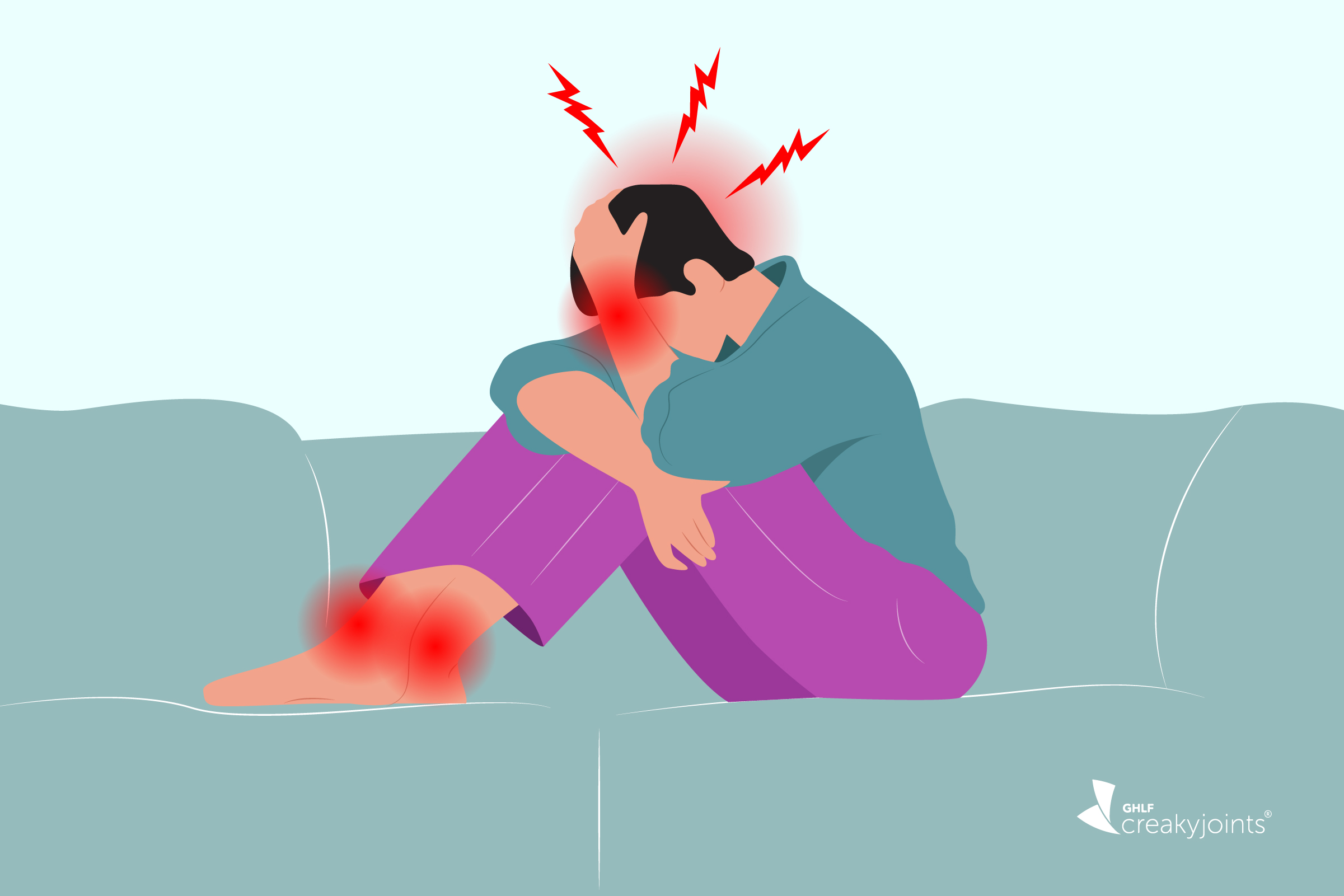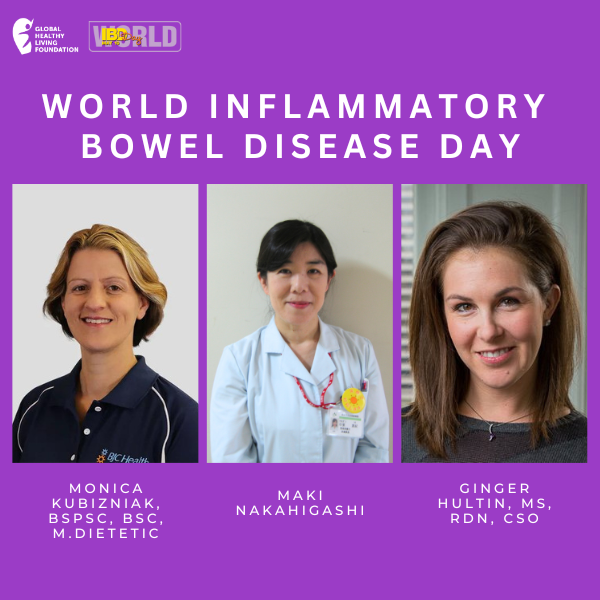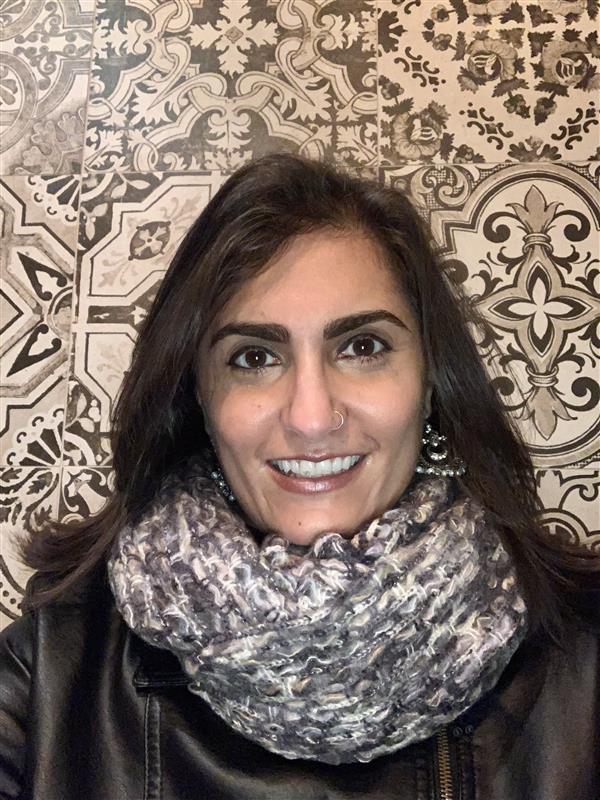In honor of World IBD Day, dietitians from three different continents share tips on managing diet and inflammatory bowel disease (IBD).
Navigating IBD and LGBTQ+ Identity: Krys Baxter’s Diagnosis Journey
Navigating IBD and LGBTQ+ Identity: Krys Baxter’s Diagnosis Journey
“I remember walking out and being like, oh my gosh, I have an answer. I know what’s wrong with me. Not to hurt, not to have to rush to the bathroom, or constantly have puke bags with me all the time.”
November 30, 2023
Susan Jara

Krys Baxter’s journey toward their inflammatory bowel disease (IBD) diagnosis hasn’t been easy. They’ve dealt with severe stomach pain since they were five years old, describing it as feeling like “someone was just stabbing me repeatedly in the stomach, and twisting the knife.”
This pain stuck with them through childhood and teenage years, leading to many hospital visits and tests. Unfortunately, they often felt like no one was really listening.
Krys’s pediatrician was their first advocate, sending them to various specialists. However, these specialists often dismissed their symptoms as growing pains or common childhood issues. Krys felt the medical community didn’t take her mother seriously. “When you talk to my mom, you know she’s from Baltimore City…so they think she’s not as intelligent as she actually is and like she’s beneath them,” says Krys. “They brushed us off, we were talked at and not talked with, and they just gave us Band-aid solutions rather than finding the actual cause.”
This led to frustration and hopelessness and more physical pain. Krys had to be careful about what they ate and the stomach pain became a constant part of their life. During their teenage years, they took a break from doctors and learned to cope, even though it limited their daily activities.
Being Heard, Finding Answers
It wasn’t until 2020, during the Covid-19 pandemic, that Krys’s health took a serious turn for the worse. Severe stomach pains, vomiting, and blood in their stool sent them back into the health care system. “I was just going days, weeks, without eating anything of substance and just drinking liquids. Sometimes I was throwing up water,” Krys recalls.
After multiple specialists and multiple endoscopic procedures, they finally encountered a provider who truly listened. “I remember asking her at the end of the first appointment, ‘Do you have an idea of what you think it might be?’ She said, probably IBD, either Crohn’s or ulcerative colitis. I was like, are you joking? In elementary school, my dad told the specialist that he thinks it might be Crohn’s or colitis…I could have gotten diagnosed years ago if people just listened to him.”
To finally get a proper diagnosis — and to start treatment — was a huge relief for Krys. “I remember walking out and being like, oh my gosh, I have an answer. I know what’s wrong with me. Not to hurt, not to have to rush to the bathroom, or constantly have puke bags with me all the time.”
How Identity Played a Role
Krys took some time to reflect on the challenges they faced in their health care journey and how their identity as a Black queer person might have influenced their experiences.
They shared, “I didn’t realize it until I got older. When I looked back on my experiences, I wondered had I not been a Black queer person, maybe the one hospital would have listened. I don’t really understand…why I just got, ‘It’s just acid reflux,” instead of [doctors] genuinely looking for something.”
Krys also highlights how doctors often dismissed their stomach issues as mental illness. This may be because LGBTQ+ community members are more than twice as likely as heterosexual individuals to experience a mental health disorder in their lifetime, according to The American Psychiatric Association. “Because the stomach is the ‘second brain,’ doctors love to say that stomach issues are mental illness related,” says Krys, urging their peers to ask for tests and labs if your stomach pain feels different from your anxiety or depression. “You know your body more than anyone else.”
Luckily, her current care team has been “fantastic,” they say. From day one, they have respected her pronouns and genuinely embraced her unique needs. This includes discussing her non-binary identity, gender-related genetic concerns, and the importance of finding a restroom that not only ensures her safety but also provides emergency access. “We have to deal with not only medical care but also bathroom access and everything around that,” they say.
Krys encourages others not to lose hope and to keep searching for the right doctor. “There are doctors out there who are going to find answers and who will search,” they say, “And it’s okay to be vulnerable with your doctors — to cry and to say too much — because they are there to help us.”
An Empathetic Support System
Krys’s journey through chronic illness and their LGBTQ+ identity has also been shaped by supportive friends and family. “I have a very unique experience,” Krys shares. “I always say that I feel like I got dropped into a unicorn family in uniform because they’re just amazing.”
Krys’s support network includes their best friends, whom they fondly call “the Frencheys” because they grew up together in a French Immersion program. This group of friends, which even includes Krys’s sister, has a remarkable commonality — many identify as LGBTQ+ in some way. Krys’s best friend is trans, another friend is non-binary, and yet another identifies as bisexual. What’s more, many of them have faced their own health hurdles, spanning from dealing with arthritis to confronting thyroid cancer. For Krys, this means never feeling uncomfortable discussing their own IBD journey.
But Krys’s support system doesn’t stop there. They describe their second-grade French teacher as ‘like a second dad.’ Krys vividly recalls an incident from their childhood when school parents didn’t want him teaching their children due to his sexual orientation. ‘I remember in second grade, there was just a huge revolt against him,’ says Krys. Her parents handled the situation with grace and understanding, emphasizing that being gay had no relevance to his ability to teach French.
Krys feels incredibly fortunate to have found such a nurturing and accepting community. “I wish that everyone had that,” Krys says, “because everyone should have some type of community or some type of family that they do feel supported in their identity.”
For Patients on a Similar Journey
Krys’s story offers valuable insights for others navigating the challenging terrain of chronic illness, LGBTQ+ identity, and health care. Here are some tips inspired by their experiences:
- Find supportive communities. Connect with friends and loved ones who understand your journey, providing comfort and strength through shared experiences.
- Persist in advocacy. Don’t give up on seeking answers and compassionate care. Advocate for yourself, ask questions, and find health care providers who respect your concerns and identity.
- Be open with your health care team. Share your fears, doubts, and emotions. They’re there to provide physical and emotional support.
- Explore health care options. If your current care provider isn’t meeting your needs, consider exploring other options. Find doctors who genuinely care about your well-being and understand your unique needs.
- Stay informed. Learn about your condition and potential treatments. Informed decisions lead to better health care choices.
- Advocate for LGBTQ+ identity. Seek knowledgeable and sensitive professionals who understand the unique health care needs of the LGBTQ+ community.
Tips for Inclusive Health Care
Krys suggests the following steps for health care professional to create a more welcoming and supportive environment for LGBTQ+ individuals.
- Respect preferred pronouns and names. Make sure to ask every patient not just for their pronouns but also the name they like to go by. It makes the health care place more welcoming.
- Offer gender-preferred medical staff. Whenever possible, ask patients if they have a gender preference for their medical staff. Consider diversifying your staff to better reflect your patient demographics, ensuring that all patients feel understood and respected.
- Provide supportive resources. In both doctor’s offices and hospitals, having one or two social workers or resource navigators can be incredibly helpful. They can assist patients not only with understanding their diagnosis but also with planning for the next steps and life ahead.
- Follow-through on safe referrals. When referring patients to other health care professionals, clinics, or hospitals, prioritize their safety. Be aware of which places are safe and LGBTQ+ friendly. If you suggest a referral, consider calling ahead to facilitate a smoother transition for the patient, alleviating the burden of explaining their situation repeatedly.
Creating Change for LGBTQ+ IBD Patients
At the Global Healthy Living Foundation, we recognize the unique health challenges faced by the LGBTQ+ community, including those living with IBD. That’s why we’re launching the “LGBTQ+ IBD experiences” survey centered on capturing and understanding your experiences. Whether it’s confronting health disparities in IBD care or navigating inclusivity in health care settings, your voice is crucial. By filling out a quick, 10-minute survey, you’re not just sharing your story; you’re helping to uncover potential inequities experienced by you or others in the community. Learn more.
This article was made possible with support from Bristol Myers Squibb.
Source:
Diversity & Health Equity Education: Lesbian, Gay, Bisexual, Transgender and Queer/Questioning. American Psychiatric Association. https://www.psychiatry.org/psychiatrists/diversity/education/lgbtq-patients.
SUBSCRIBE TO GHLF
RELATED POST AND PAGES
_
Was this article helpful?
YesNo







